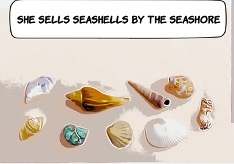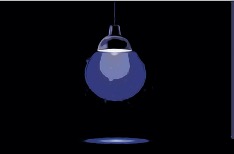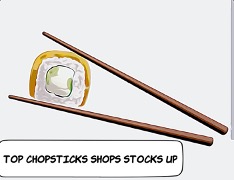How Now Brown Cow is a phrase that is used in teaching elocution to demonstrate round vowel sounds.
The expression does not have any fixed meaning to it. Just like most tongue twisters, it has no literal meaning. The phrase is often used by people who teach English speech and elocution to demonstrate the pronunciation of rounded vowel sounds.
The ‘ow’ in the phrase is meant to represent the diphthong shown as /aʊ/. This phrase is quite easy to remember by children and English language learners because it rhymes.
The origin of this phrase is not so clear. The phrase ‘brown cow’ is mostly used in Scotland to describe a barrel of beer in the 18th century. People regard the phrase ‘how now brown cow’ is seen as a nonsense phrase.
It’s a phrase with no real meaning, though sometimes can be used as a jovial greeting to people. This expression is often recited but as well misunderstood.
It has no literal meaning as it is used or serves as a teaching aid to help in the learning of formal speech. This is because the repetition and silliness of this phrase make it an effective tool for learning.
Some of the phrases like ‘How now brown cow’ are; ‘Who cans a can like a canner cans a can?’, ‘Peter Piper picked a peck of pickled peppers’, and ‘How much wood would a woodchuck chuck if a woodchuck could chuck wood?’
15 Phrases Like How Now Brown Cow
- Who cans a can like a canner cans a can
- A pricey peck of pickled peppers was picked by prissy Peter Piper.
- If a woodchuck will chuck wood, how much wood will the woodchuck chuck?
- She sells seashells by the seashore.
- If a dog must chew shoes, whose shoes should he choose?
- Who lights a nightlight on a lit night bright as tonight?
- Fresh French fried fly fritters.
- I slit a sheet, and on a slit sheet was the sheet I slit.
- Ted fed Fred blue butter, and Fred fed Ted freshly baked bread.
- With picks and sticks, six sick hicks break the six sleek bricks.
- A happy hippo hopped and hiccupped.
- Selfish shellfish
- All great Greek grape growers must grow giant Greek grapes.
- Top chopstick shops stock up.
- Which witch switched the Swiss wristwatches?
Who Cans A Can Like A Canner Cans A Can?
This phrase is a tongue twister. A canner is said to be someone who cans food. A canner can can anything but he can’t can a can. He can only preserve things in a container. It is an interesting tongue twister.
To understand the meaning of this, you have to first recognize the noun which is canner, and also what he does which is to can fruit or vegetables.
So ‘Can you can a can’ means can you preserve food in a can; ‘as a canner’ is referring to the person that preserves the food; ‘can can a can’ or ‘as a canner can can a can’ refers to a person who fills up a can and seals it.
In other words, it means to put a can itself into another can.
A pricey peck of pickled peppers was picked by prissy Peter Piper
This is a nursery rhyme. A peck is said to be an old English weight measurement. A pickled pepper is known to be Capsicum pepper preserved by pickling it.
Peter Piper is known to be a cognitive error that people make, whereby they tend to confuse two words that resemble one another, usually when the first letter (s) are the same.
This phrase means that Peter Piper was a lazy worker who boasted that he has picked more pepper than he had. The peppers were pickled means that he could have stolen them.
If a woodchuck will chuck wood, how much wood will the woodchuck chuck?
This is another tongue twister. A woodchuck is an animal, a kind of marmot that is regionally called a ‘groundhog’. Simply put, it is a small rodent. Chuck means to throw or toss aside. This phrase has no literal meaning.
This phrase is trying to say that if a groundhog develops a skill to chuck wood around the place, how much wood could he throw?
Woodchucks don’t throw wood around, they do toss dirt during the process of digging out their burrows. There is no literal meaning to this statement.
This expression asks how much wood a groundhog could throw if he learned to chuck pieces of wood about.
During the process of digging out their burrows, woodchucks pitch dirt rather than wood.
She Sells Seashells By The Seashore

This is another tongue twister that has a true story behind it. It is about a real seashell seller who lived in Dorset and usually collected shells and fossils from the beach.
She usually sells them to make a living and could also identify all the various species. It is simply Alliteration. This refers to a repetition of initial consonant sounds in the words of a sentence or a line of poetry.
This is a song that is meant to be a tribute to ‘Mary Anning’ the sea shell seller. Another tongue twister with a real-life basis is this one.
It tells the story of a Dorset resident who sold seashells and frequently went beachcombing for fossils and shells.
She could identify every species and typically sells them to make a living.
If a dog must chew shoes, whose shoes should he choose?
This is a funny tongue twister like that of the woodchuck. It’s simply whose shoe will a dog choose or pick if he chews people’s shoes. This tongue twister also ends as a question.
This tongue twister is amusing, similar to the woodchucks. If a dog decides to chew on people’s shoes, the question is simply which shoe will he choose or pick.
This tongue-twister concludes with a query.
Who lights a nightlight on a lit night bright as tonight?

A night light is a light that is not so bright and can be left on through the night. It is used mostly for children in their rooms.
This phrase means that you don’t have to light or put on a nigh-light, because this night already has a light night. It means that since the night has a bit of light, it would be pointless to put on the night light.
This tongue twister has a similar sound and it is an alliteration. A light that is not too bright and can be left on all night long is a night light. The majority of the time, kids use it in their room.
This expression suggests that you are not required to turn on or ignite a nightlight because there is already light in the night.
It suggests that turning on the night light would be unnecessary because there is some light in the night. This tongue twister is an alliteration and has a similar sound.
Fresh French fried fly fritters
A fritter is a small cake made of batter which often contains fruit, vegetables, or fish i.e deep-fried. It is also an alliteration as it has the repetition of the initial consonant sound /f/.
I slit a sheet, on a slit sheet was the sheet I slit
To slit something is to make a long narrow cut in it. The /sh/ sound is found in the phrase. To slit a sheet means to make a straight long incision on something. ‘I slit the sheet’ means you cut something.
‘The sheet I slit’ refers to what you slit i.e the sheet or the particular sheet. ‘And on the slit sheet I slit’ means you still cut the already slit sheet or the sheet you previously slit.
Ted fed Fred blue butter, and Fred fed Ted freshly baked bread
This tongue twister is easy to interpret. It means that Fred fed bread to Ted and also Ted fed Fred bread. It just means that one person gave bread to another and alternatively, the person gave bread too to the first person.
With picks and sticks, six sick hicks break the six sleek bricks
This phrase involves the use of the /s/ and /k/ sounds. Hicks means a simple person that is from a small town or country. The phrase refers to six of them, i.e Hicks.
To Nick means to give a small cut or a scratch. The phrase means that six sick people from a small town cut six bricks using a stick and pick.
A Happy Hippo Hopped And Hiccupped
This phrase implies that a happy hippo jumped and sobbed. This phrase suggests first that there is a happy hippo and the next thing he did was to jump, after jumping he hiccupped or sobbed.
This is also alliteration as it involves the /h/ sound. This expression suggests that a joyful hippo leaped and wept.
This expression implies that a happy hippo was initially present, that he then jumped, and that following his jump, he hiccuped or wept.
Selfish Shellfish
A shellfish person is a word used for a person that displays selfish behavior. The person is only concerned with his gain and interest.
A ‘selfish shellfish’ is a person who thinks only about himself and himself alone. It’s often used by a selfish person.
When someone is called a ‘selfish shellfish’ the person is regarded or seen as greedy or selfish someone, he is seen as someone after only himself and no one else.
One who acts selfishly is referred to as a ‘shellfish person.’ The individual solely has his or her interests and benefits in mind.
One who just considers oneself or herself is referred to as a ‘selfish shellfish.’ It’s frequently used to describe someone as self-centered.
When someone is described as a ‘selfish shellfish,’ it implies that they are conceited or selfish, looking out exclusively for themselves.
All great Greek grape growers must grow giant Greek grapes
This phrase makes use of alliteration as it involves the consonant sound/. The interpretation of this phrase is that there’s a great grape grower, and this grape grower grows nice or great Greek grapes.
The meaning of this expression is that there is a wonderful grape grower who produces nice or great Greek grapes.
The phrase refers to both the ‘Great Greek Grape Grower’ and the ‘Great Greek Grapes’ as individuals.
Top Chopstick Shops Stocks Up

A chopstick is a pair of slender sticks which is held between the thumb and the fingers. Chopsticks are mostly used in Asian countries. It is used to pick up various food.
This phrase could be interpreted to mean that the top chopstick shops have stocked up. They have gotten enough chopsticks for buyers.
This implies that the chopstick shops have chopsticks in large quantities.
Which Witch Switched The Swiss Wristwatches?
This is a tongue twister that talks about three witches. This tongue twister comes as a question. It can be interpreted to mean that someone is asking which witch among the witches changed the Swiss wristwatch.
This implies that there is a particular witch that took a certain wristwatch. It also states that the wristwatch is a Swiss wristwatch. There are three witches mentioned in this tongue twister according to the poem.
This tongue-twister begins with a query. One possible interpretation is that someone is inquiring as to which witch among the witches replaced the Swiss watch.
This suggests that a particular witch stole a particular wristwatch. The watch is also identified as a Swiss watch.
Conclusion
The phrase ‘How now brown cow’ teaches elocution and it is used in demonstrating round vowel sounds. This expression does not have any fixed meaning to it.
This article has examined 15 phrases that are similar to this. Some of these phrases are seen as tongue twisters and most times they don’t have a literal meaning.